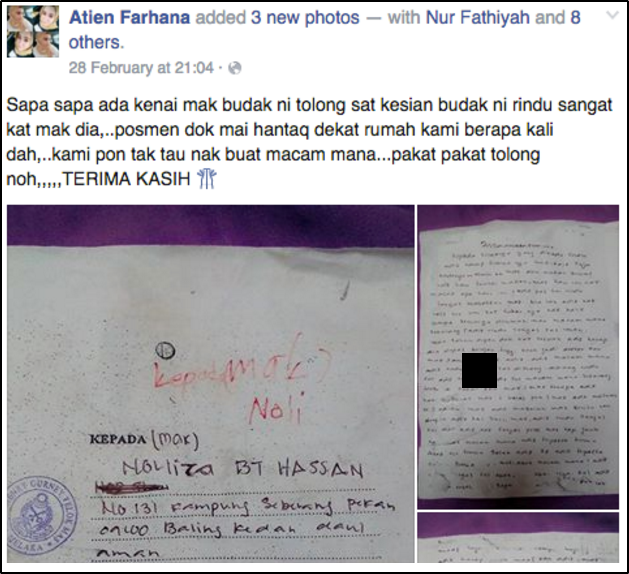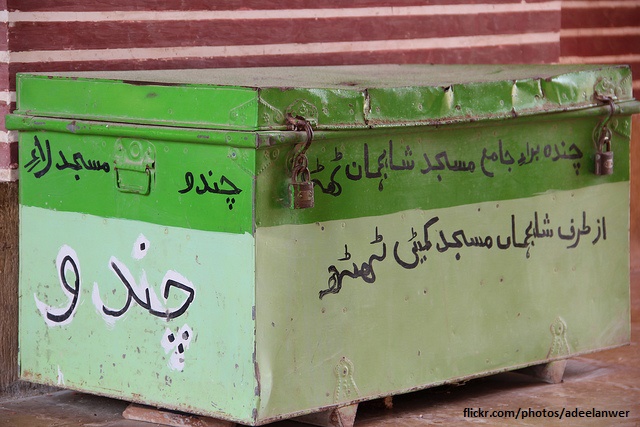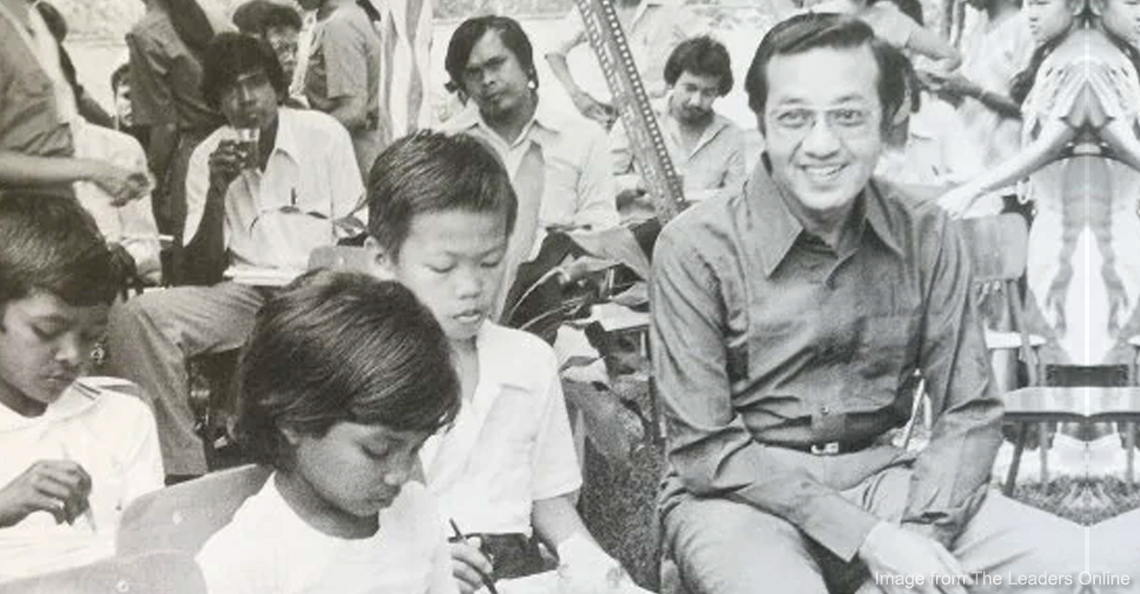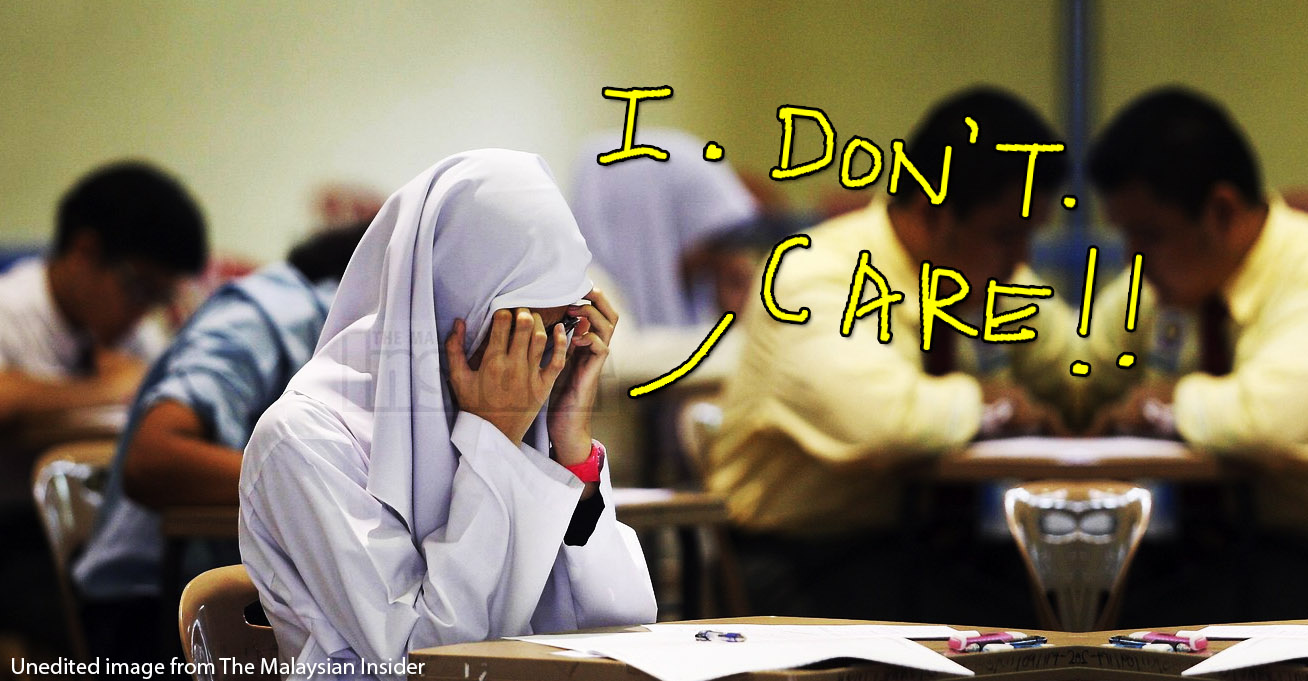First Malaysian ever to win the Iclif Leadership Energy Awards used to be a pimp in his teens

- 456Shares
- Facebook410
- Twitter6
- LinkedIn10
- Email6
- WhatsApp24
[Artikel ni diterjemah daripada artikel asal kat SOSCILI. Nak baca artikel ni dalam BM? Klik kat sini!]
If you were to imagine a criminal, you’ll probably get the image of a middle-aged burly man with stubble and scars on his face, most likely wearing a striped black-and-white shirt, an eye mask, and possibly with a sack on his back.

Unfortunately, in real life criminals can be all sorts of shape, size, gender, or even age. 2017 saw perhaps the starkest reminder of that last one, when a gang of kids dubbed the ‘Bad Boys of Keramat‘ was said to have burned down a tahfiz, killing 23 people. And the youngest of them had been only 11.
When someone below 18 performs a crime, the consequences can be different from those for an adult. Taking the Bad Boys of Keramat example, their crime can get them a death sentence, but the Child Act prevents a death sentence for underaged criminals. Instead, other punishments can be prescribed, like putting them in jail for as long as the Agong allows it, penalizing their parents, caning them (although with different criteria than adult caning), or sending them off to special schools.
In Malaysia, there are several such special schools like Henry Gurney schools for juvenile delinquents (naughty boys aka juvies, with offences convicted by the Juvenile Court) and Integrity Schools for young criminals (banduan muda, with offences convicted by the other courts). These schools have a focus on rehabilitating their students through education, with an emphasis on discipline and morality.
While some may be skeptical of their effectiveness, every so often we hear success stories from their students, like…
A former childhood criminal who won an acclaimed leadership award
Even though getting convicted can really put a hamper on someone’s reputation, Mohamad Rizan Hassan did not let that stop him. An ex-juvie, he became the Head of Information for MBM as well as the Director of Business Development for Tekat Auto Terminal Training, where he won the Iclif Leadership Energy Awards (ILEA) for the category of Corporate Workers (public/private sector), plus other youth awards like 2011’s Anugerah Perdana Belia Negara and Tokoh Belia ASEAN. But let’s talk about that first one.

The ILEA was given out by the Iclif Leadership & Governance Centre, an international center that provides executive education, research, training and consultancy in the field of leadership development and corporate management, and it was the first time a Malaysian won that award. The achievement is even more impressive if you take his criminal backstory into account.
Rizan came from a poor family with a lot of siblings, and maybe because of that he turned to a life of crime in his early teens, stealing and extorting people for money. He later formed his own gang in secondary schools with other kids his age, and they stole motorcycles in Johor Bahru. This devolved into drug dealing, fighting, and after abandoning school and joining a real gang in the Bukit Bintang area, pimping as well.
Rizan would handle the entry of prostitutes from Uzbekistan through social and student passes, and rent them out for RM500 per service.
“I was once tasked by the gang leader to handle prostitutes from Uzbekistan. At that time, prostitutes aren’t so much from China. The money was really great: I earned up to RM5,000 a day. But dirty money is never enough, and it didn’t bring me peace of mind.” – Mohamad Rizan Hassan, for Kosmo.
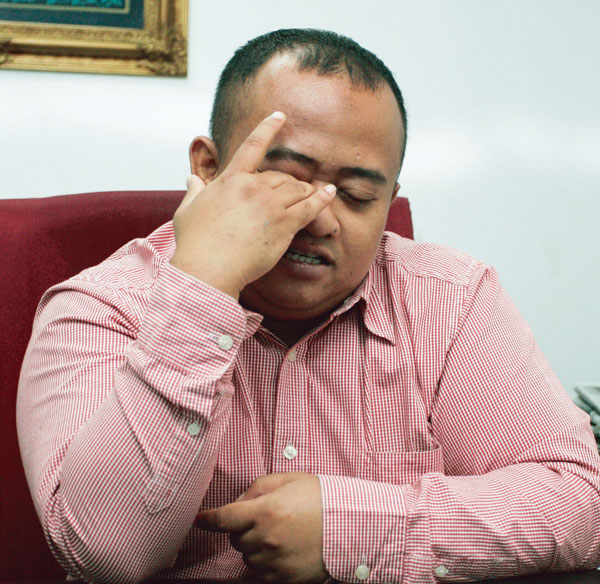
His life of crime was finally cut short after an arrest following a fight at Kampung Keramat when he was 17, and he was later enrolled at a Henry Gurney school in Malacca. Determined to turn over a new leaf, he got a job at an electronics factory in Johor Baru and worked hard after he got out.
“I worked 365 days a year without leave and worked 12 hours a day. My dedication and hard work convinced the factory’s manager to send me for training in mechatronics for three years in Japan.” – Mohamad Rizan Hassan, for Kosmo.
Thing looked up for Rizan after that, who was offered a job as an engineer for Japanese factories in Malaysia, a job that pays him somewhere between RM15,000 to RM20,000 a month. He also founded the Tekat College in Kajang, Selangor, to help problematic youths turn their lives around.
“A majority of students at Tekat College used to be involved in juvenile cases like fighting, stealing and robbing. It’s good that 90% of them managed to secure jobs, and some of them became entrepreneurs by opening their own car workshops.” – Mohamad Rizan Hassan, for Kosmo.
Rizan’s story had been exceptional, but he probably wasn’t the only one transformed by the system…
A lot of former childhood criminals do have serious regrets
Some time ago, the story of a Henry Gurney student went viral. This student regularly sent letters to his mother, but they all went unanswered… because he got the wrong address 
You can read the contents of the letter in BM here, but basically he misses his family and wonders why his mom did not reply his weekly letters and if his dad is still angry with him. According to Kosmo, for residents of the Henry Gurney school it’s compulsory to write a letter to their families every week to rebuild their personalities.
That story wasn’t the only one that pulls at the ol’ heartstrings. A resident, Jafri (not his real name), was sent to Henry Gurney on account of rape and murder when he was just 11.
“Before I got here, my life was in shambles. Mom and Dad was divorced. Both of them remarried. Mom lives in Kuala Lumpur, Dad in Kedah. I stayed with my grandma in Perak.” – Jafri, Henry Gurney resident, for Kosmo.
According to Jafri, as his siblings don’t like him living with his grandma he moved to KL to live with his Mom. But his stepfather did not like him living together with them. So he went out on his own and rented a room in a house filled with 19-24 year old dudes, paying the rent by working as a truck driver’s assistant and lifting stuff. Imagine a 10-year old kid doing that. At just 11 years old, he committed the crime of raping a female acquaintance, killing her and hiding her dead body.
He turned himself in to the police, and had been living in captivity for 10 years now. He had since learned how to sew, and now he can whip up a police uniform in just 45 minutes. He’s really hoping for a pardon from the Sultan of Selangor, and he wished to take care of and support his mom with money from tailoring once he’s released.
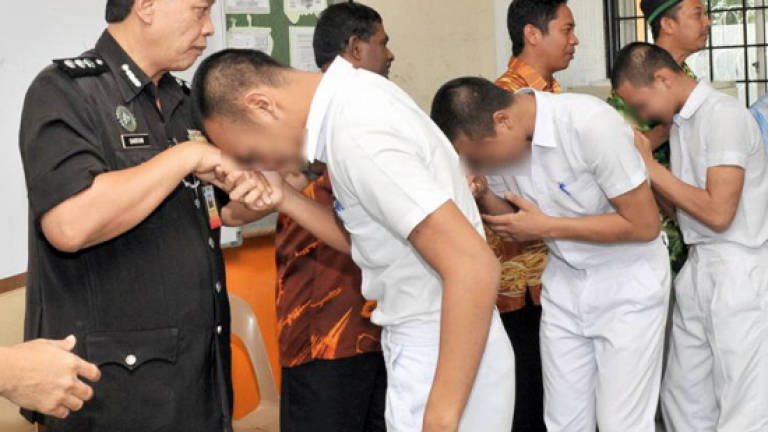
It would seem that family plays a big part in rehabilitating child offenders. Amer Hussin (not his real name), a former Henry Gurney School student who earned a licensed release after receiving an offer to further his studies by scoring 8As in his SPM. However, according to Amer, his two years and nine months stay at Henry Gurney was filled with anxiety. He feared that he won’t get to see the faces of his parents ever again.
“I won’t be able to face reality if they were to die while I was in there. My father’s sick, and my mother was the one who visited me every three months. She took a bus to get here, and sometimes she had to sleep at the bus station. I was worried that something would happen to them… I can’t bear to see them suffer like that anymore.
Every time my mother visited, I would apologize to her. I know that apologizing won’t make up for everything that I’ve done. I once pushed her away. Yet she’s still willing to accept me.” – Amer, for Berita Harian.
Here are some quotes from the inhabitants of the Henry Gurney School nearing Hari Raya:
“If I were ever to be free again, I would like to feed my mother. I’ve never fed her food before.” – Henry Gurney student, from MStar.
“I would like to apologize to my family, especially my mum. I embarrassed her a lot, and said some bad things to her face. I want her to forgive me.” – Henry Gurney student, from MStar.
While we can’t say this with certainty for all child offenders…
With the right guidance, there is still hope for child offenders
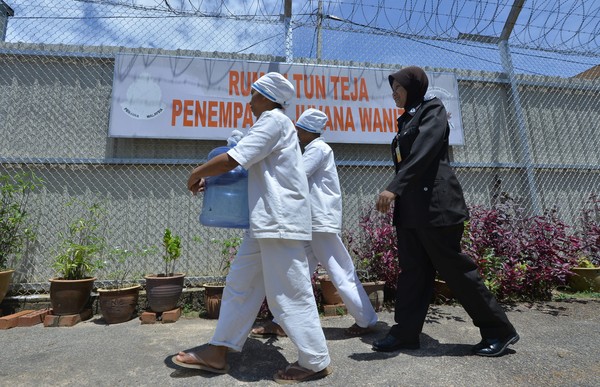
This may come as a surprise, but we’ve had special institutions for troubled children even before Merdeka, with the establishment of the Advance Approved School (Sekolah Pemulihan Lanjutan) within the walls of the Muar Prison in 1948. Since then, such schools have bloomed under the Prisons Department, with offenders being exposed to a wide variety of activities and skill classes like mechanical motor workshops, woodworking, making furniture and crafts, masonry, plumbing, painting, electrical repair, the art of agricultural gardens as well as religious classes.
Those who can’t read are also offered 3R classes (reading, ‘riting and ‘rithmetics), and it’s possible to go all the way up to STPM level in these schools. So even though getting convicted at a young age may mark a person for the rest of his/her life, as proven by some of these juvies, people are capable of change. Rizan’s case proved that a person’s success in life is not dependent on who he or she is in the past, and in the case of Amer, him scoring 8As for his SPM proved that it’s still possible to improve, even within the walls of a detention center.
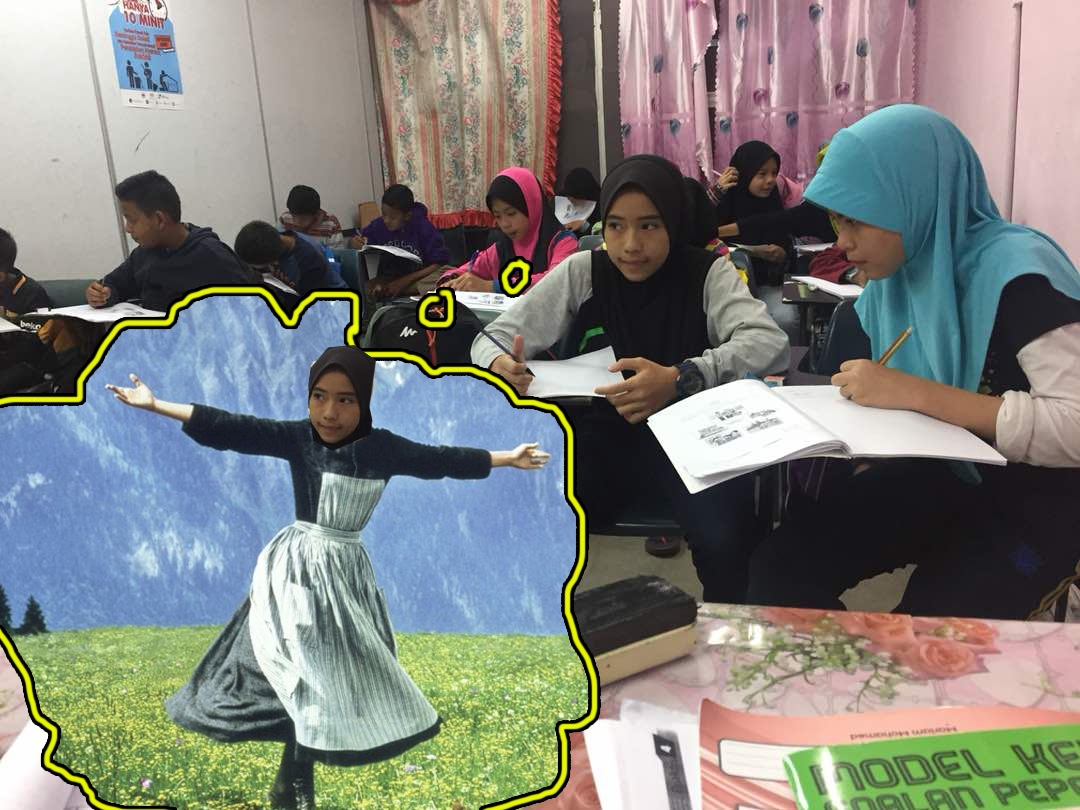
So if you are a teen with problems but no one to turn to, of if you have or know troubled children and teenagers, remember that there are ways to reach out and seek help. For starters, here are two ways to get help for free:
- Signing up for counseling sessions at the nearest district/state Jabatan Kebajikan Masyarakat. The counseling sessions are provided by the government, and they can give advice and guidance for personal problems as well as problems regarding careers and family.
- Joining a Pusat Remaja Kafe@Teen. It’s an initiative by the National Population and Family Development Board (LPPKN) to help people between 13 to 24 years old to go through their teenage years by empowering them through guidance and education.
- 456Shares
- Facebook410
- Twitter6
- LinkedIn10
- Email6
- WhatsApp24

